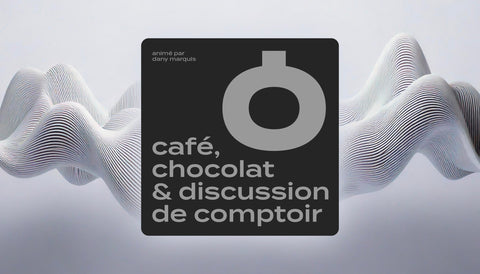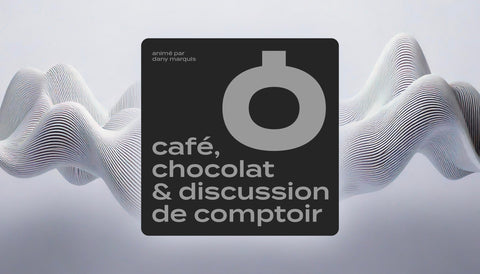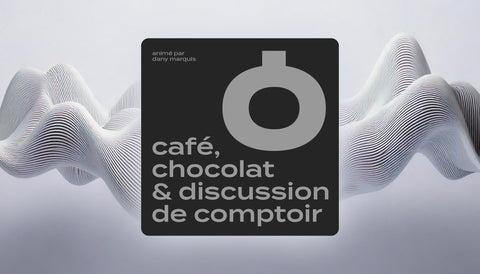Espresso and Coffee: Answers to Your Questions
Adapted from the live broadcast of March 6, 2025 with Dany Marquis
On March 6th, we hosted a live Q&A with Dany Marquis, founder of Brûlerie du Quai, accompanied by Mathis as host. Following your many questions, we offer a condensed version adapted for the blog. On the agenda: espresso, machines, filter coffee, ethics, and responsible consumption.
Espresso machines: for or against?
Dany starts off strong: he strongly advises against purchasing an espresso machine. They're too expensive, often disappointing in terms of taste, and poorly suited to showcasing the coffee's terroir. Instead, he suggests filter methods, such as the Kalita or Chemex, which are simpler, less expensive, and much more faithful to the aromas of fine coffees.
Automatic or manual?
If you still want to keep your espresso, there are two types of machines:
01. Automatic : practical, but not very flexible.
02. Manual : More complex, but ideal for enthusiasts who want to adjust settings.
For true enthusiasts, a semi-professional machine combined with a good grinder turns espresso into a hobby.
The quest for the right espresso
A good espresso can't be improvised. Dany recommends setting a preparation schedule: for example, 15g of coffee to obtain 30g in a cup in 30 seconds. Then, experiment by changing only one parameter at a time. It's a real quest, but also a pleasure for those who love precision.
The mill, an essential tool
It's often overlooked: the grinder is more important than the machine itself . An improperly adjusted grind will ruin your extraction, no matter how good your equipment is. Dany emphasizes the importance of investing in a good grinder suited to the type of coffee you use.
Water: An underestimated ingredient
Water directly influences the taste of coffee. Avoid distilled water (too pure for proper extraction) and opt for mineralized water, or even filtered tap water if it's of good quality. For purists, there are even mineral sachets to add, like those from Third Wave Water.
Roasting your coffee at home?
Dany has temporarily removed green coffee from the online store due to high prices. He plans to relaunch it with a more stable supply. Roasting at home is possible, but difficult to master without professional equipment. The experiment can be fun, but the results remain limited.
Coffee and wine: a comparison?
Coffee shares many things in common with wine: it is a local product, has great aromatic complexity, and is dependent on the climate... but it requires active preparation from the consumer . After roasting, a coffee must rest for 2 to 4 weeks to reach its full potential.
Where to find the best coffee?
According to Dany, you should choose a local roaster with whom you have a trustworthy relationship. At Brûlerie du Quai, coffees are classified transparently (classic, prestige, reserve) to respect the product and customer expectations.
Coffee prices and responsible consumption
Why is coffee more expensive? Climate change, shrinking harvests, new demands (especially in Asia)... The reality is that coffee wasn't expensive enough before . Dany recommends a balanced approach: simpler coffees on weekdays, and specialty coffees on weekends.
Ethics and real impact
Fair trade certifications don't always guarantee a fair price. For Dany, ethics come from quality : paying the right price for excellent coffee means recognizing the producers' expertise. A much more sustainable win-win situation.
Espresso vs. Filter: Which Has More Caffeine?
A large mug of 100% Arabica filter coffee often contains more caffeine than an espresso. But an espresso made with Robusta (like the "Zombie Awakening" blend) is very concentrated. The extraction method and bean type make all the difference.
Whether you're an espresso lover or a filter coffee fanatic, what matters is curiosity and respect for the product. If you're interested in learning more, explore our coffee collection at brulerieduquai.com or listen to our other podcast episodes.



